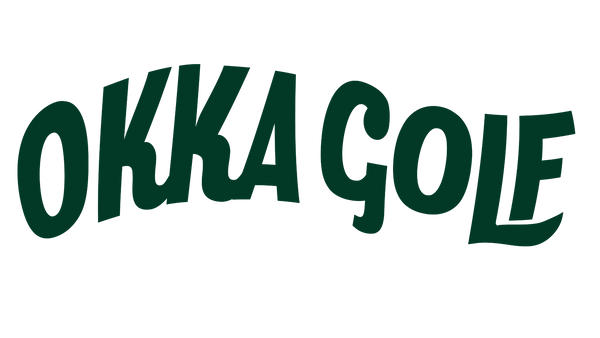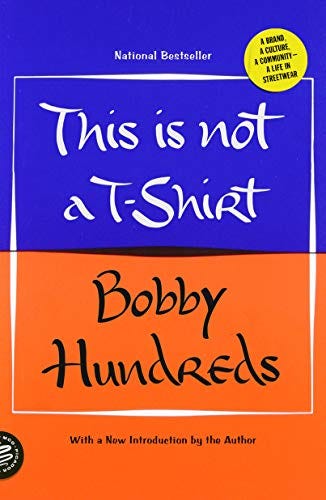One of my expectations of myself is to soak myself in research
So in building OKKA, I’ve been on an absolute bender of information overload.
And now I’m gonna share it with you with my notes and anecdotes.
Enjoy!
podcasts
Given his Instagram, you’d think Daniel Bradshaw would be a bit off the deep end. But this interview was really well-spoken, open and honest look at him and StreetX. Pleasantly surprised and given he’s from Perth, someone I look to often.
Maybe a polar opposite to StreetX, Oli Clothing is a lot more subtle. Oli himself is pretty quiet and softly spoken. Very humble, but still has a great story about how he grew his brand from just himself screenprinting tees to the operation it is now.
In thinking about who I’m wanting to emulate, it’s really both these guys from Perth.
I love StreetX’s marketing because it doesn’t take itself too seriously. It’s fun, fucking funny, and more importantly, it works.
Oli couldn’t be more different. More relaxed, less in your face, Oli lets the clothing do the talking and rides that wave.
Maybe I’m shooting myself in the foot here, but I want the best of both worlds? I want to have fun, not take myself too seriously, and experiment like Street X has.
But I also want high-quality, handmade, authentic products that Oli does.
So these first two podcasts have been foundational for me.
Stephen, the founder of Malbon, comes across as a pretty quiet and reserved guy, but Malbon itself is might the closest blueprint to what I’m trying to achieve with OKKA. Streetwear for golf enthusiasts basically. So was a must-listen for me.
There’s also a podcast with Stephen’s wife Erica who’s co-CEO. That one was mostly fluff (I don’t think the whole episode is worth a listen) but there’s an excellent snippet where she talks about how Golfwear may go the way of Athleisure, e.g people wearing it out for status and the illusion they play golf. Golf is getting cool!
Behemouth of a podcast. Goes from early days of Quicksilver to more recent problems. Just a great story.
books
Ripper book. Great storytelling
streetwear is full of passion, and averse to plastic marketing campaigns. Streetwear is transparent and purposeful by design, not financial incentive. It's brave and invincible. It's foolish and urgent, but that's forever been part of what attracts people to a cause.
and
the T-shirt is effective because it's about messaging. Young people are not always the best communicators, but they have plenty to get off their chests (pun intended).
To this day, that's my primary rule when it comes to designing T-shirts: have something to say.
Here at The Hundreds, we begin with an opinion on an issue and then incorporate our signature attitude and personality. The goal is to tell a full narrative with a perspective and a purpose. And even after all these years, we find that we still have much more to speak on.
Q: From your experience, what’s the biggest mistake a designer can make in branding?
A: Embody an identity that isn't his or hers. You are unique and powerful the way you're built - embrace it wholly, warts and all. Your coolness (or lack of it) may draw people in, but that's not what keeps a customer. It's your humanness and realness that people want.
and
Q: What characteristic do you think all successful streetwear brands share?
Nobody wants to admit this - maybe because it's not very "cool" for a market that operates on cool currency - but, it boils down to whether or not you're a good business. There are a lot of incredible artists and visionaries out there with failing brands because they can't keep the engine running. There are also a lot of terrible brands that kill it because it's a healthy operation. Your favorite, most popular and prevalent brands are most likely well-oiled machines.
videos
A compilation of lessons and ideas from Virgil. It’s time to build (that community)!
It has to have roots back in the actual something that was like a community of people.
So I think it's important that your brand doesn't like just live like in your apartment with a few people that you know. [It] should be out there, like other people should find [that] it represents them.
A cool look behind the whacky success that is Liquid Death
Our brand is all about comedy and making people laugh.
We're not tying our brand to some specific niche like action sports. So I think as long as we're constantly just riffing on culture, just can go basically for as long as something like Saturday Night Live is relevant because you're literally just a part of culture and making people laugh.
At the end of the day, we're really creating an entertainment company and a water company like we don't want to create marketing, we want to actually entertain people, make them laugh in service of a brand. And if you can do that, they're going to love your brand because you're giving them something of value.
something that i would like preach and take as a takeaway for all you guys in this point in your career is that perfectionism doesn't advance anything ironically.
As a creative and as a designer there's no wrong way to go about the future of your career. the only the only failure is not to try. And i think that designers we all have like a or creators or artists we have a natural convention to sort of be maybe tormented or a little bit of like an inner struggle “is the work living up to its fullest potential” or “is it as great as the work that you idolize from your design idols”.
but at the end of the day it's your body of work and it's the the amount of work and the refinement of that work that'll define who you are as a creative

